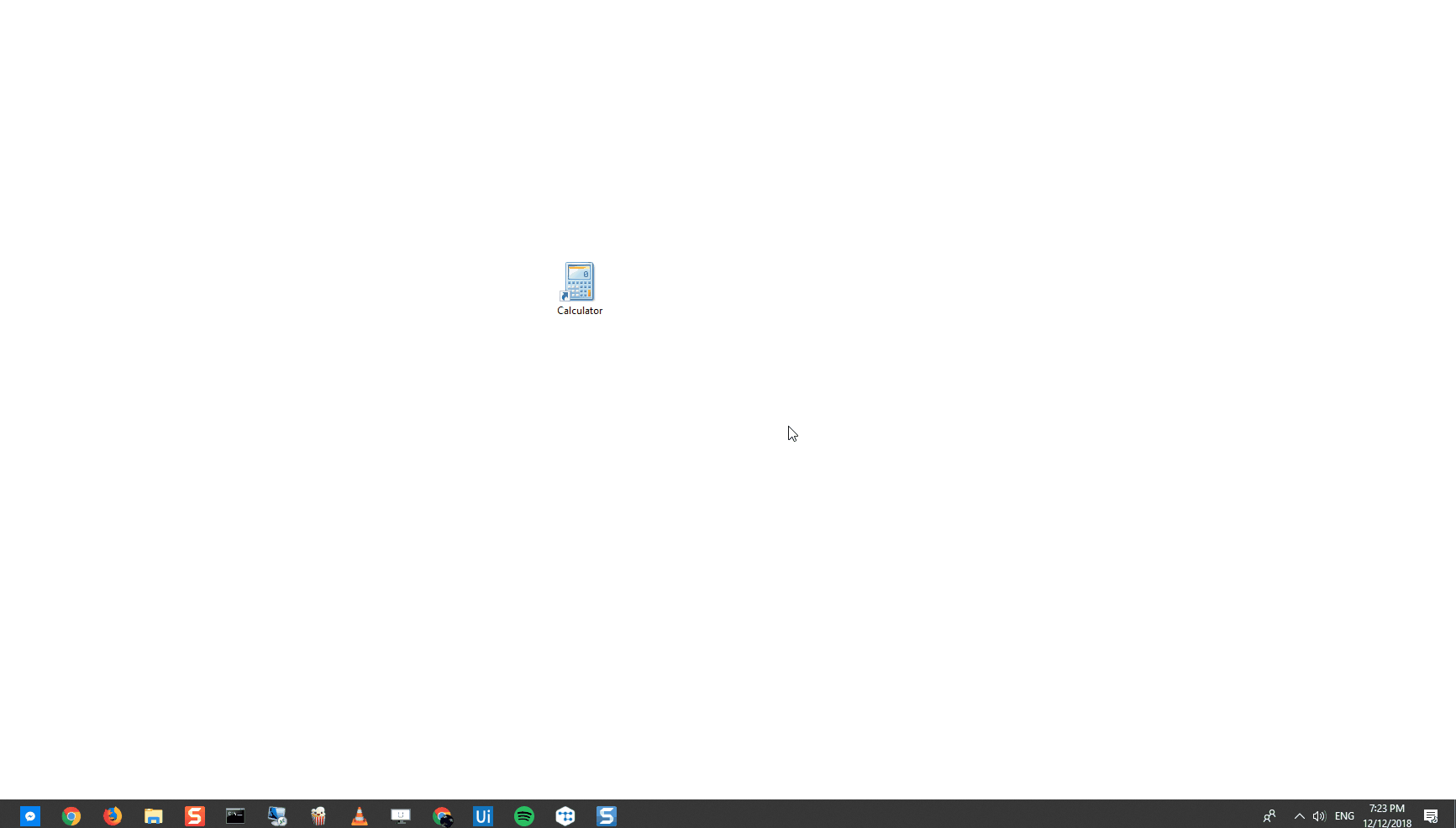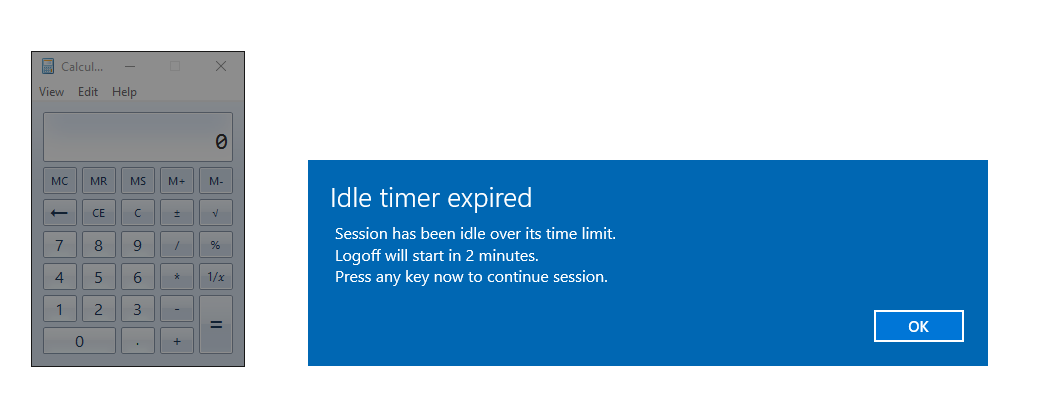- Overview
- UI Automation
- About the UI Automation activity package
- Applications and technologies automated with UI Automation
- Project compatibility
- UI-ANA-016 - Pull Open Browser URL
- UI-ANA-017 - ContinueOnError True
- UI-ANA-018 - List OCR/Image Activities
- UI-DBP-006 - Container Usage
- UI-DBP-013 - Excel Automation Misuse
- UI-DBP-030 - Forbidden Variables Usage In Selectors
- UI-DBP-031 - Activity verification
- UI-PRR-001 - Simulate Click
- UI-PRR-002 - Simulate Type
- UI-PRR-003 - Open Application Misuse
- UI-PRR-004 - Hardcoded Delays
- UI-REL-001 - Large Idx in Selectors
- UI-SEC-004 - Selector Email Data
- UI-SEC-010 - App/Url Restrictions
- UI-USG-011 - Non Allowed Attributes
- UX-SEC-010 - App/Url Restrictions
- UX-DBP-029 - Insecure Password Use
- UI-PST-001 - Audit Log Level in Project Settings
- UiPath Browser Migration Tool
- Clipping region
- Computer Vision Recorder
- About Citrix technologies automation
- Configuration steps
- Example of automating a Citrix App
- Known issues and limitations
- Activities index
- Activate
- Anchor Base
- Attach Browser
- Attach Window
- Block User Input
- Callout
- Check
- Click
- Click Image
- Click Image Trigger
- Click OCR Text
- Click Text
- Click Trigger
- Close Application
- Close Tab
- Close Window
- Context Aware Anchor
- Copy Selected Text
- Element Attribute Change Trigger
- Element Exists
- Element Scope
- Element State Change Trigger
- Export UI Tree
- Extract Structured Data
- Find Children
- Find Element
- Find Image
- Find Image Matches
- Find OCR Text Position
- Find Relative Element
- Find Text Position
- Get Active Window
- Get Ancestor
- Get Attribute
- Get Event Info
- Get From Clipboard
- Get Full Text
- Get OCR Text
- Get Password
- Get Position
- Get Source Element
- Get Text
- Get Visible Text
- Go Back
- Go Forward
- Go Home
- Google Cloud Vision OCR
- Hide Window
- Highlight
- Hotkey Trigger
- Hover
- Hover Image
- Hover OCR Text
- Hover Text
- Image Exists
- Indicate On Screen
- Inject .NET Code
- Inject Js Script
- Invoke ActiveX Method
- Key Press Trigger
- Load Image
- Maximize Window
- Microsoft Azure Computer Vision OCR
- Microsoft OCR
- Microsoft Project Oxford Online OCR
- Minimize Window
- Monitor Events
- Mouse Trigger
- Move Window
- Navigate To
- OCR Text Exists
- On Element Appear
- On Element Vanish
- On Image Appear
- On Image Vanish
- Open Application
- Open Browser
- Refresh Browser
- Replay User Event
- Restore Window
- Save Image
- Select Item
- Select Multiple Items
- Send Hotkey
- Set Clipping Region
- Set Focus
- Set Text
- Set To Clipboard
- Set Web Attribute
- Show Window
- Start Process
- System Trigger
- Take Screenshot
- Tesseract OCR
- Text Exists
- Tooltip
- Type Into
- Type Secure Text
- Use Foreground
- Wait Attribute
- Wait Element Vanish
- Wait Image Vanish
- Accessibility Check
- Application Event Trigger
- Block User Input
- Check/Uncheck
- Check App State
- Check Element
- Click
- Click Event Trigger
- Drag and Drop
- Extract Table Data
- Find Elements
- For Each UI Element
- Get Browser Data
- Get Clipboard
- Get Text
- Get URL
- Go to URL
- Highlight
- Hover
- Inject Js Script
- Keyboard Shortcuts
- Keypress Event Trigger
- Mouse Scroll
- Navigate Browser
- Select Item
- Set Browser Data
- Set Clipboard
- Set Runtime Browser
- Set Focus
- Set Text
- Take Screenshot
- Type Into
- Unblock User Input
- Use Application/Browser
- Window Operation
- Perform browser search and retrieve results using UI Automation APIs
- Web Browsing
- Find Images
- Click Images
- Trigger and Monitor Events
- Create and Override Files
- HTML Pages: Extract and Manipulate Information
- Window Manipulation
- Automated List Selection
- Find and Manipulate Window Elements
- Manage Text Automation
- Load and Process Images
- Manage Mouse Activated Actions
- Automate Application Runtime
- Automated Run of a Local Application
- Browser Navigation
- Web Automation
- Trigger Scope Example
- Enable UI Automation support in DevExpress
- Computer Vision Local Server
- Mobile Automation
- Release notes
- About the mobile device automation architecture
- Project compatibility
- Get Log Types
- Get Logs
- Get Page Source
- Get Device Orientation
- Get Session Identifier
- Install App
- Manage Current App
- Manage Other App
- Open DeepLink
- Open URL
- Mobile Device Connection
- Directional Swipe
- Draw Pattern
- Positional Swipe
- Press Hardware Button
- Set Device Orientation
- Take Screenshot
- Take Screenshot Part
- Element Exists
- Execute Command
- Get Attribute
- Get Selected Item
- Get Text
- Set Selected Item
- Set Text
- Swipe
- Tap
- Type Text
- Terminal
- Release notes
- About the Terminal activity package
- Project compatibility
- Best practices
- Find Text
- Get Color at Position
- Get Cursor Position
- Get Field
- Get Field at Position
- Get Screen Area
- Get Text
- Get Text at Position
- Move Cursor
- Move Cursor to Text
- Send Control Key
- Send Keys
- Send Keys Secure
- Set Field
- Set Field at Position
- Terminal Session
- Wait Field Text
- Wait Screen Ready
- Wait Screen Text
- Wait Text at Position

UI Automation activities
Known issues and limitations
With the help of UI Automation activities you can natively generate selectors for Citrix technologies and create your automation projects. There are, however, a few things to consider:
The Citrix client needs to be installed per machine
The Extension for Citrix is installed per machine and cannot communicate with the Citrix client (Citrix Receiver or Citrix Workspace) when it is installed per user. You need to install the Citrix client per machine before installing the UiPath Extension for Citrix.
Interactive selection with high DPI
Interactive selection with High DPI is natively performed in Citrix Apps. Please note that it is mandatory to restart your active Citrix sessions after you change DPI scaling options.
If you are using multiple displays with different DPI scaling options and you move the target window across the displays, UI element selection can appear offset. In this case, it is recommended to resize the target window and select UI elements again.
Upgrading to the Citrix Workspace v1810
After you upgrade the Citrix Receiver to the Citrix Workspace, the UiPath Extension for Citrix is automatically uninstalled. In order to build selectors for Citrix technologies again, you need to reinstall the UiPath Extension for Citrix.
Please note that after upgrading to the Citrix Workspace v1810 the UiPath Extension for Citrix becomes corrupted. This is a known issue with this particular version of Citrix Workspace, and prevents you from opening any Citrix Apps. The following error message is displayed:
You might be having an issue with a Citrix virtual driver (UiPathPluginCitrix). Contact your system administrator for further assistance.
To fix this issue, you need to reinstall the UiPath Extension for Citrix and then restart the Citrix Workspace.

Please note that after every upgrade or installation of the Citrix Receiver or Workspace the UiPath Extension for Citrix needs to be reinstalled.
The Citrix Receiver for Universal Windows Platform (UWP) is Not Supported
The UiPath Extension for Citrix can not be installed for the Citrix Receiver for Universal Windows Platform. This also applies to Citrix Workspace for Universal Windows Platform. In this scenario, it is advisable to install the standard Citrix Receiver or Citrix Workspace instead.
The Citrix App Session May Enter The Idle State During Background Automation
If a Citrix App does not receive any input from the user for a while, the associated Citrix session enters the idle state and disconnects. The idle disconnect timeout value is configured on the Citrix application server, and is generally about 30 minutes.
By default, the Click and Type Into activities send hardware events to the Citrix App, just as a regular user would. This prevents the Citrix App from entering the idle state.
However, if you use only background automation (such as the Click activity with the SendWindowMessages property enabled) for more than 30 minutes, the Citrix App may enter the idle state, and the following message is displayed:

If you run into this issue, it is recommended to increase the idle timeout value on the Citrix application server.